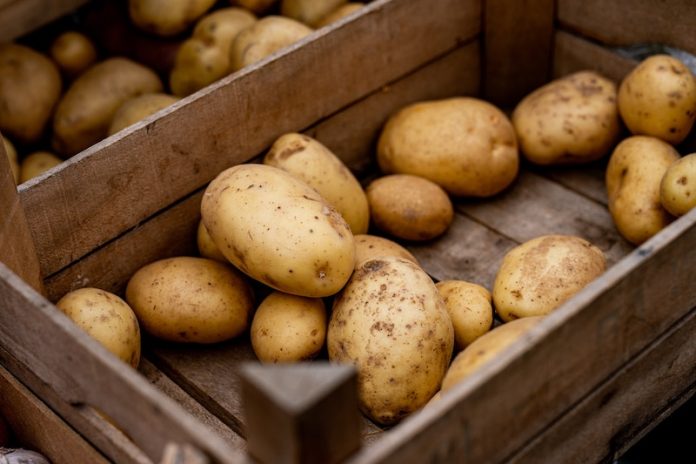
Potatoes, often seen as a dietary villain in discussions about health and diabetes, have been given a reprieve by new research from Edith Cowan University (ECU).
While the potato may not offer all the same health benefits as certain other vegetables, such as reducing the risk of Type 2 diabetes, this study suggests that the health concerns associated with potatoes may be more related to how they are prepared and what accompanies them in meals.
The Danish Diet, Cancer and Health Study
Over 54,000 individuals participating in the long-term Danish Diet, Cancer and Health study provided details about their dietary habits.
Dr. Nicola Bondonno from ECU’s Nutrition and Health Innovation Research Institute led an analysis of this data, focusing on the relationship between vegetable consumption and the development of Type 2 diabetes.
The study revealed surprising findings:
Beneficial Impact of Vegetables: Those who consumed the most vegetables were 21% less likely to develop Type 2 diabetes compared to those with the lowest vegetable intake.
Potatoes Not Necessarily Harmful: While previous research had linked potatoes to an increased risk of diabetes, this study found that potatoes, when boiled, did not have a negative effect on diabetes risk.
Impact of Preparation: The way potatoes were prepared played a significant role. Boiled potatoes were not associated with a higher risk of diabetes, but this null effect disappeared with mashed potatoes and fries, likely due to the addition of ingredients like butter and cream.
Dietary Patterns Matter: The study highlighted that individuals who consumed the most potatoes also tended to consume more unhealthy foods, such as butter, red meat, and sugary drinks—known contributors to diabetes risk.
Emphasizing the Role of Vegetables
The study underscores the potential role of vegetables, particularly leafy greens and cruciferous vegetables like spinach, lettuce, broccoli, and cauliflower, in reducing the risk of Type 2 diabetes.
This relationship between vegetable consumption and diabetes risk should be integrated into public dietary guidelines.
The research suggests that potatoes can be included in a healthy diet as long as they are prepared in a health-conscious manner.
Potatoes offer fiber and essential nutrients, making them a valuable carbohydrate source when prepared wisely.
Healthy Potato Consumption Tips
- Opt for boiled potatoes over mashed or fried ones.
- Minimize the use of butter, cream, and oils when preparing potatoes.
- Include potatoes alongside other vegetables in meals.
- Diversify carbohydrate sources to include potatoes as a part of a balanced diet.
- Avoid overreliance on red meat when consuming potatoes.
Conclusion
Potatoes, often unfairly criticized in discussions of diabetes risk, may not be as problematic as previously thought. Proper preparation and mindful consumption can make potatoes a part of a healthy diet.
This research underscores the importance of vegetables in diabetes prevention and encourages a more nuanced perspective on the role of potatoes in our diets.
If you care about diabetes, please read studies about new way to achieve type 2 diabetes remission, and one avocado a day keeps diabetes at bay.
For more information about diabetes, please see recent studies about 5 dangerous signs you have diabetes-related eye disease, and results showing why pomegranate is super fruit for people with diabetes.
The research findings can be found in Diabetes Care.
Follow us on Twitter for more articles about this topic.
Copyright © 2023 Knowridge Science Report. All rights reserved.



